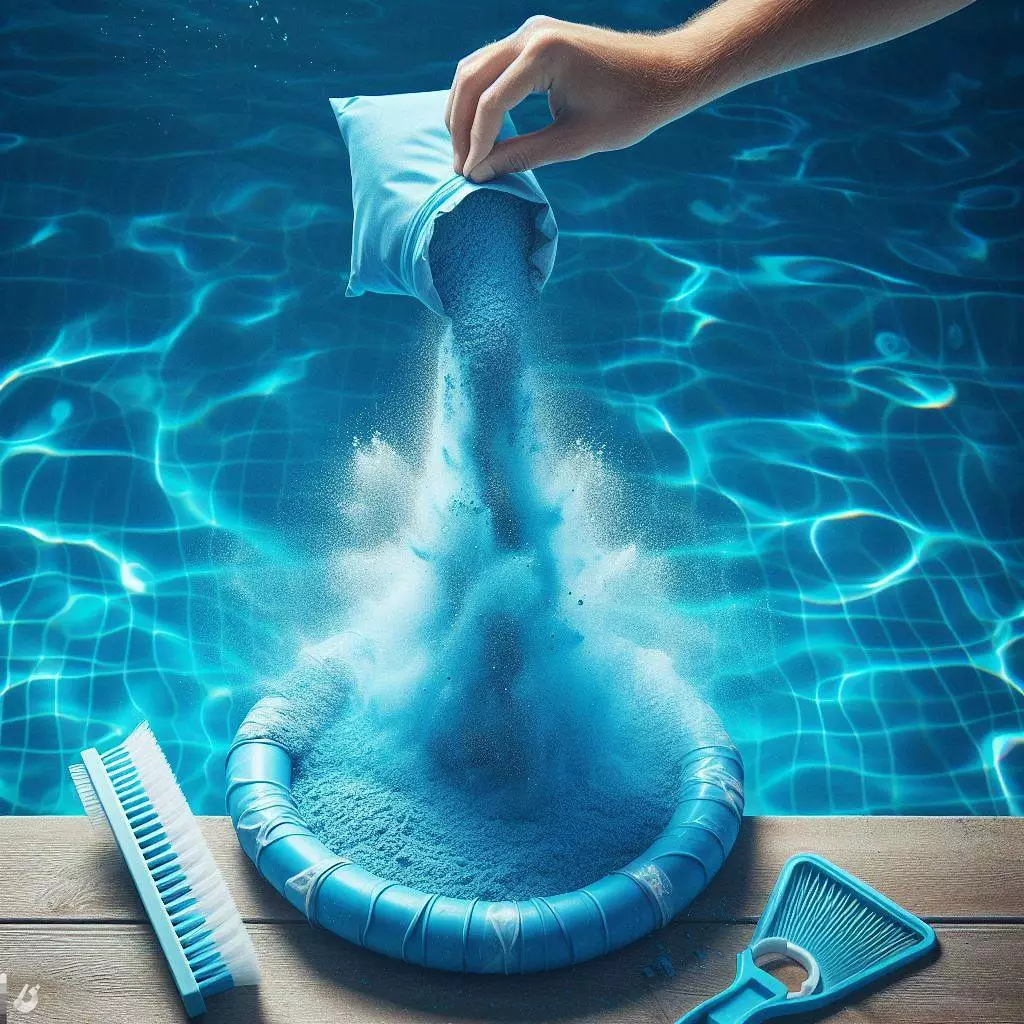Swimming pool flocculants, also known as clarifiers, are commonly used to improve water clarity by aggregating suspended particles for easier removal through filtration. While effective in enhancing water clarity, flocculants can sometimes lead to the development of unpleasant odors in pool water. This article explores the causes of odor problems associated with swimming pool flocculants and offers strategies to mitigate and prevent these odors, ensuring a pleasant swimming experience.

Understanding Swimming Pool Flocculants
Swimming pool flocculants are chemical compounds designed to coagulate suspended particles in pool water, causing them to clump together and settle to the bottom of the pool or become trapped by the filtration system. Flocculants are typically used to address cloudy water caused by fine particles that are difficult to remove through standard filtration methods.
Causes of Odor Issues
Chemical Reactions
Flocculants can react chemically with organic contaminants present in pool water, leading to the formation of volatile organic compounds (VOCs) that emit unpleasant odors. These VOCs can produce a strong, chemical-like smell in the pool water, particularly if the flocculant dosage exceeds recommended levels.
Bacterial Growth
Improper use or overuse of swimming pool flocculants can create conditions conducive to bacterial growth in the water. Bacteria can metabolize organic matter trapped by the flocculant, releasing foul-smelling byproducts such as hydrogen sulfide, ammonia, and other sulfur compounds, resulting in a distinct odor in the pool.
Inadequate Filtration
If flocculated particles are not effectively removed by the filtration system, they can accumulate in the pool water and decompose over time, contributing to odor issues. Insufficient filtration can result from clogged or improperly maintained filters, allowing organic matter to decompose and produce foul odors.
Environmental Factors
Environmental factors such as temperature, sunlight exposure, and air quality can influence the development of odor issues in pool water treated with flocculants. High temperatures and prolonged sunlight exposure can accelerate chemical reactions and bacterial growth, exacerbating odor problems.
Strategies to Mitigate Odor Issues
Proper Dosage
Follow manufacturer instructions for the correct dosage of swimming pool flocculants based on pool size and water condition. Avoid overdosing, as excess flocculant can lead to the formation of odor-causing compounds. Regularly test pool water to ensure flocculant levels remain within recommended ranges.
Effective Filtration
Maintain a consistent filtration schedule to remove flocculated particles from the water promptly. Clean or backwash the pool filter as needed to prevent the accumulation of debris and contaminants that can contribute to odor issues.
Water Circulation
Ensure adequate water circulation in the pool to facilitate the even distribution of flocculant and promote efficient filtration. Proper circulation helps prevent localized accumulation of flocculated particles, reducing the likelihood of odor formation.
Water Chemistry Maintenance
Maintain balanced water chemistry parameters, including pH, chlorine levels, and alkalinity, to optimize the performance of swimming pool flocculants and prevent odor issues. Properly balanced water chemistry creates an environment less conducive to bacterial growth and chemical reactions that produce odors.
Regular Pool Maintenance
Implement a comprehensive pool maintenance routine that includes skimming, vacuuming, and brushing to remove surface debris and prevent organic matter buildup. Regular maintenance helps reduce the workload on swimming pool flocculants and minimizes the risk of odor issues.
Conclusion
In conclusion, while swimming pool flocculants are effective in improving water clarity, they can sometimes contribute to odor problems in pool water. Understanding the causes of these odor issues, such as chemical reactions, bacterial growth, inadequate filtration, and environmental factors, is crucial for implementing effective mitigation strategies. By following proper dosage guidelines, maintaining regular filtration and circulation, balancing water chemistry, and implementing comprehensive pool maintenance practices, pool owners can minimize odor issues associated with swimming pool flocculants and ensure a pleasant swimming experience for all.

 Instant
Quote
Instant
Quote Email
Us
Email
Us